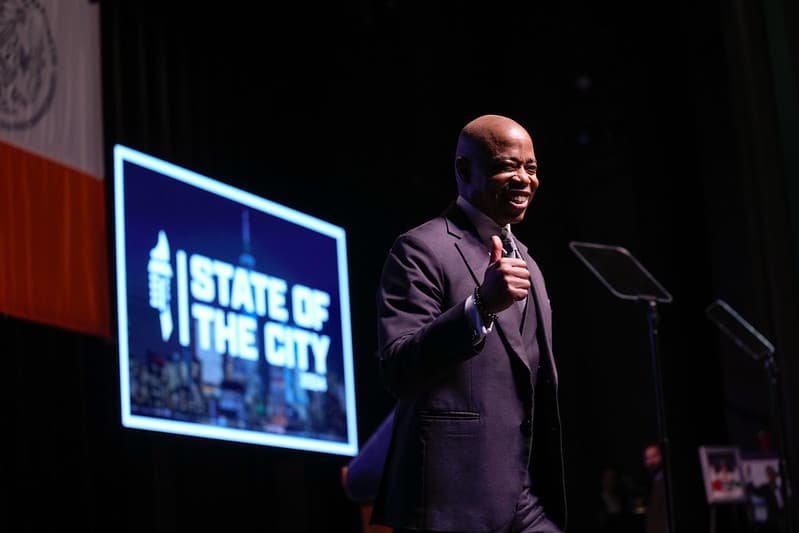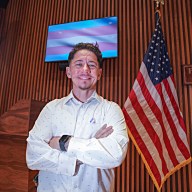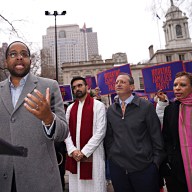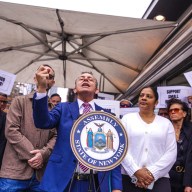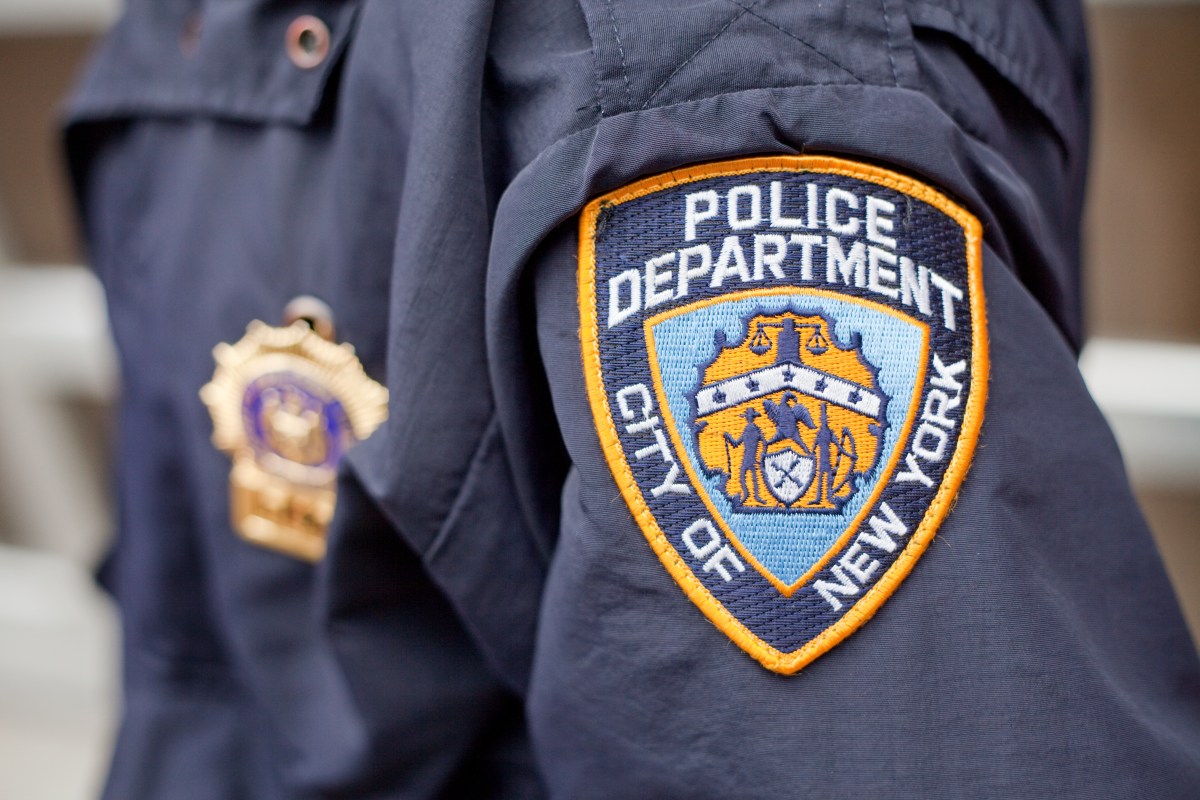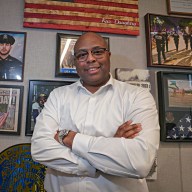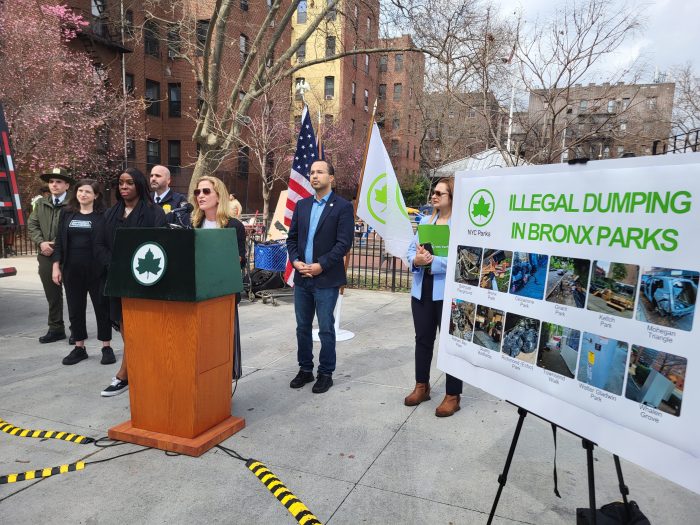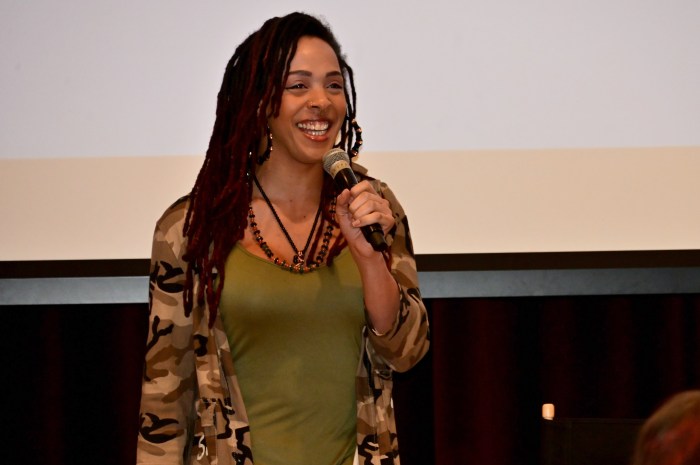After months of decrying the negative impacts of social media on young people’s mental health, Mayor Eric Adams took a concrete step toward combating the issue earlier this week by officially designating limitless access to platforms like TikTok and Facebook a public health hazard.
Adams announced the designation, as part of an advisory from city Health Commissioner Dr. Ashwin Vasan, during his State of the City address in the Bronx on Wednesday. The action was one of the splashier items in Adams’ speech and quickly made national headlines.
“Companies like TikTok, YouTube, Facebook are fueling a mental health crisis by designing their platforms with addictive and dangerous features,” Adams said during his address. “We are the first major city in America to take this step and call out the dangers of social media like this, just as the surgeon general did with tobacco and guns. We’re treating social media like other public health hazards and it must stop.”
Adams’ effort was immediately applauded by Gov. Kathy Hochul, who herself spoke about combating the negative impacts of social media on young people in her State of the State address earlier this month.
The advisory seeks to provide parents and caregivers with guidelines around both limiting children’s social media time and having more open conversations about developing healthier ways to use the platforms. While the advisory was the only action Adams announced on Wednesday, Vasan pledged there would be more coming from the administration on the issue in the “coming days.”
In laying out its reasoning for the advisory, the Health Department cites declining mental health among the city’s youth over the past decade, with rates of high schoolers “experiencing hopelessness” shooting up 42% between 2011 and 2021. Black, Latino, female and LGBTQ youth make up a sizable chunk of those affected, the Health Department found.
Furthermore, suicidal ideation among city high schoolers rose 34% over the same period, according to the Health Department.
The Health Department draws a direct connection between young people’s deteriorating mental health and the ubiquity of social media usage among youth in recent years, pointing to data showing that 77% of city high schoolers have three hours or more of non-academic screen time per day. Additionally, it references a similar advisory US Surgeon General Dr. Vivek H. Murthy issued last May that said there are “ample indicators” that social media could have a “profound risk of harm” to children.
Most notably, the advisory cautions caregivers not to give children devices with access to social media, including smartphones, until age 14. At that point, caregivers should “reassess based on the current evidence of harms and the child’s strengths and needs.”
“Why age 14? Because the American Academy of Pediatrics and the US Surgeon General said there’s no safe age for developing brains to be using social media,” Vasan told reporters following the mayor’s speech on Wednesday. “Age 14 is a time of big transition, when we go from kids going on the subway alone, moving into high school. So, we said, ‘Wait till 14, reassess the data when we hit 14.’”
The Health Department also suggests that those who are taking care of kids implement “tech free times,” openly discuss social media usage with their children and model how to engage with the platforms in a healthy manner. And it encourages caregivers to create a “Family Media Plan” to talk about using social media with their children and set mental health goals.
Vasan said the Health Department is also producing tools and conversation guides as well as redistributing a public school curriculum focused on monitoring social media use and fostering discussions.
“What we’re doing is providing a playbook for people to start to have those conversations in a standardized way and also to create community,” Vasan said on Wednesday. “It’s reshaping the relationship between young people and social media; it’s not about getting rid of it. It’s harm reduction.”
However, one expert shared concerns about the idea of placing too many restrictions on young people’s social media access.
Devorah Heitner, an author who writes about parenting and technology, said she worries advising parents to bar their children from having smart phones until age 14 could have unintended consequences.
“If your kid’s coming home alone, and they’re 12, do you just not get them a phone?” Heitner asked. “What if you don’t have a home phone? There’s just a lot of reasons why people are getting their kids connected devices that are valid reasons. [But] that doesn’t necessarily mean an 11-year-old should be on Snapchat or TikTok.”
She said restrictions on smartphone and social media access should be paired with alternatives like free after school programs or safe public spaces where children can socialize in person.
But Heitner acknowledged that it seemed like the city is taking a more balanced approach that includes having discussions, rather than just limiting screen time.
“At least the New York approach is less about restriction and more about saying have the conversation,” she said. “And I think in that sense, that’s a better approach and a safer approach. Like we’re not saying we’re locking it down, but ‘hey, don’t just hand this over to your kid without a conversation.’”



